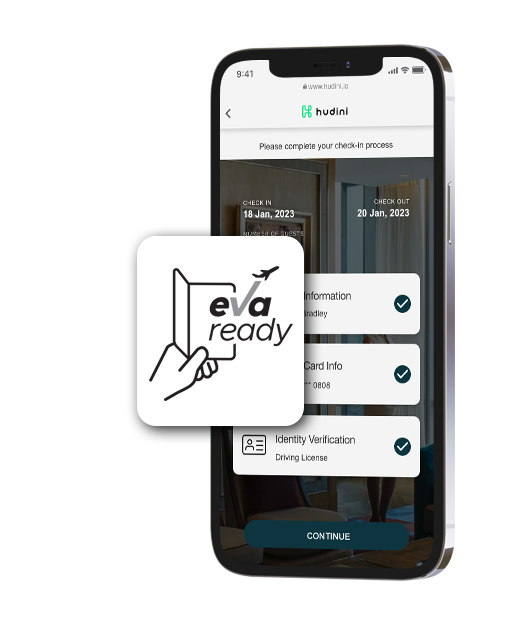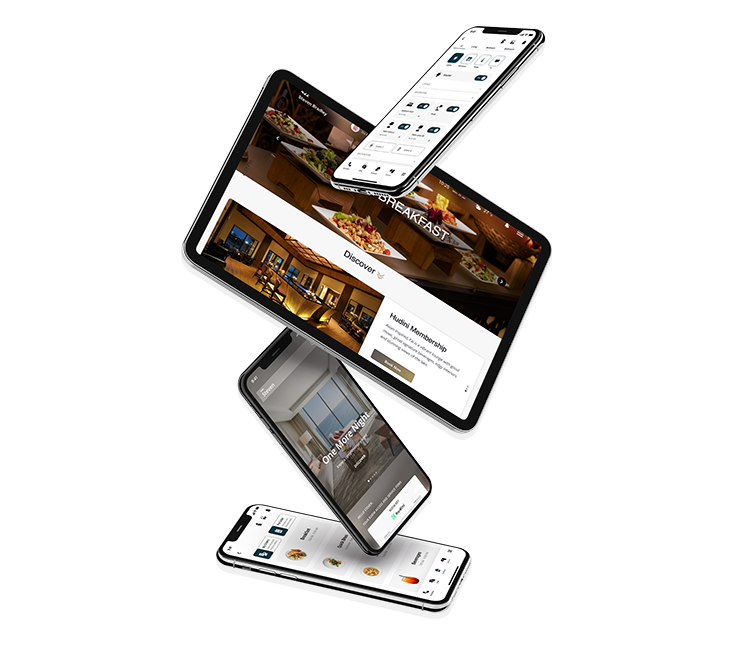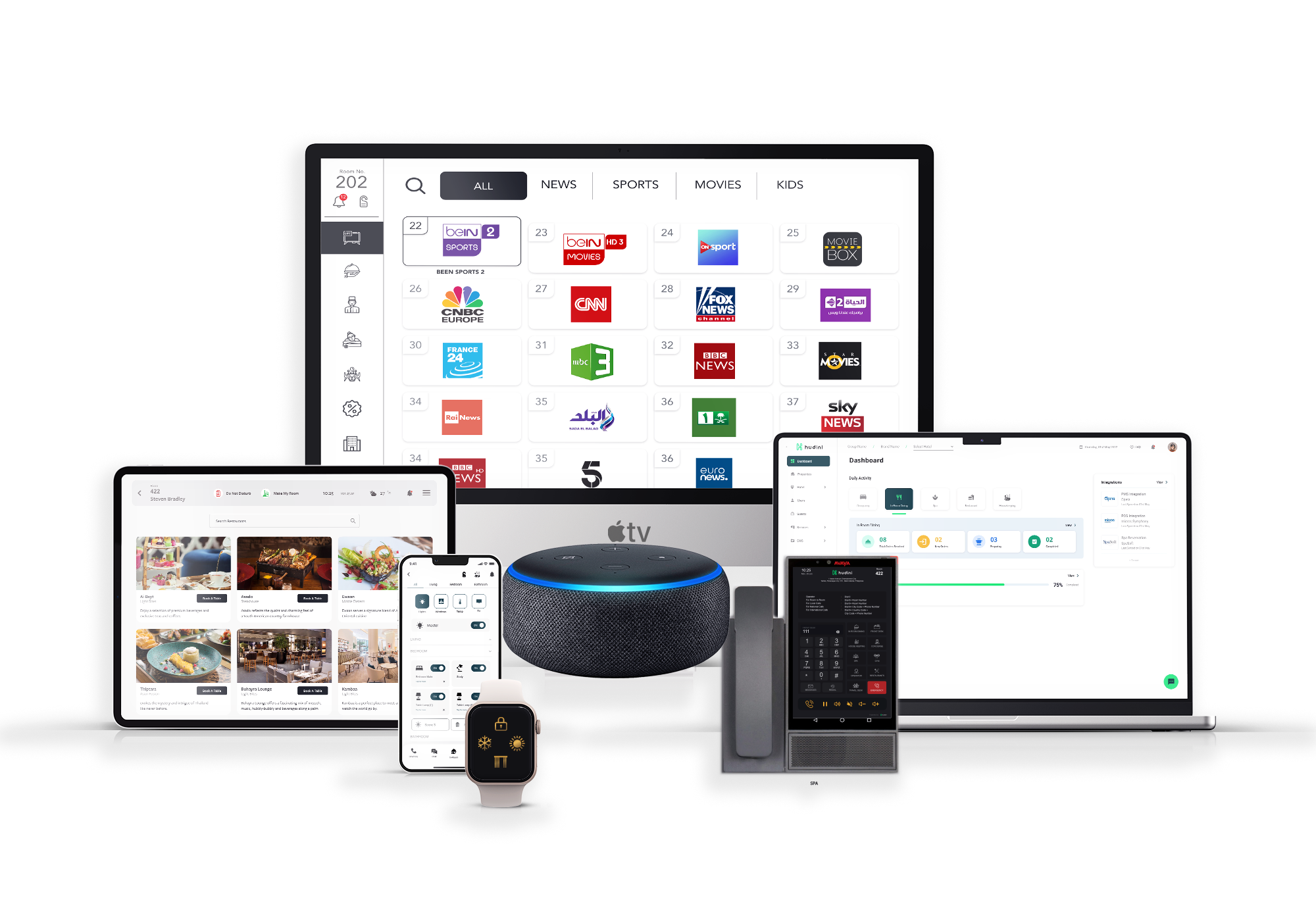
3.26.2024
As the founder and CEO of Hudini, a global provider of smart hotel solutions, Prince Thampi has dedicated the past six years to helping hotels improve the guest experience. Before Hudini’s inception in 2018, Thampi’s career was rooted in technology and consulting, with over a decade at Arowana Consulting and in various leadership roles including CEO and Managing Director at Macro Software Systems.
Hudini offers a comprehensive suite of services that span the entire guest journey. From online booking and mobile check-in to digital room keys, in-room services, and seamless check-out processes, Hudini leverages a proprietary middleware bus, data analytics, and artificial intelligence to enhance guest engagement and increase hotel revenues. The platform’s device-agnostic front end ensures a customizable, easy-to-use interface across mobile, web, tablet, and other digital channels, supporting hotel operations from pre-arrival to post-departure.
In this interview, Thampi shares valuable lessons from his entrepreneurial journey, the inspiration behind Hudini, and the opportunities he identified in the hospitality sector. He delves into the challenges of integrating technology in an industry characterized by siloed applications and the lack of interoperability between systems. He also discusses Hudini’s approach to leveraging data and AI to offer personalized guest experiences and the importance of technology in operations, and he shares his vision for the future of hotel technology.
Can you share some of the lessons you’ve learned as a technology entrepreneur? What inspired you to found Hudini and how did you identify the opportunity in the hospitality industry?
 Whenever I was travelling, I noticed that airlines had advanced consumer facing digital solutions, but hotels did not. Some hotels offered digital engagements through tablets or television, but these were very limited in scope, not scalable, not easily maintainable nor affordable. I realised that there was this big gap in the market and saw an opportunity to create an affordable and scalable guest-facing application. The challenge in the hospitality industry is that a large number of siloed applications power hospitality operations. There are no open standards or interoperability between these systems, resulting in islands of guest data. This demanded advanced technology that allows experimentation and constant changes.
Whenever I was travelling, I noticed that airlines had advanced consumer facing digital solutions, but hotels did not. Some hotels offered digital engagements through tablets or television, but these were very limited in scope, not scalable, not easily maintainable nor affordable. I realised that there was this big gap in the market and saw an opportunity to create an affordable and scalable guest-facing application. The challenge in the hospitality industry is that a large number of siloed applications power hospitality operations. There are no open standards or interoperability between these systems, resulting in islands of guest data. This demanded advanced technology that allows experimentation and constant changes.
Can you explain the concept of Hudini’s proprietary middleware platform and how it works?
Our hospitality middleware platform has 100+ pre-built integrations across all functionalities in one single guest interface. The platform works across all touch points of the hotel guest journey from online booking, mobile check-in and digital room keys to in-room services, communication, check-out and payments. Our end-to-end technology connects all process-supporting applications in a hotel with an array of customisable solutions. The front end is an easy-to-use multi-channel user interface on mobile, web, tablet, chat TV etc. enabling guests to communicate and interact with hotels closer than ever before.
How does Hudini leverage data and AI to transform the hospitality industry?
 Hudini’s platform leverages a combination of data and AI which gives hotels access to guest data such as preferences, past behaviours, and demographics, enabling hotels to deliver tailored experiences and offers. This could be personalised promotions, room preferences, curated amenities, and customised service recommendations that can lead to better share of wallet for hotels.
Hudini’s platform leverages a combination of data and AI which gives hotels access to guest data such as preferences, past behaviours, and demographics, enabling hotels to deliver tailored experiences and offers. This could be personalised promotions, room preferences, curated amenities, and customised service recommendations that can lead to better share of wallet for hotels.
The catalyst for the transformation in the hospitality industry is the guest. The guest of the past is no longer the guest of today. A guest today has more choices that he or she can access and buy into than ever before. This is a significant shift for the industry. Guest expectations are high and demanding. Today’s guests want to engage with the hotel through a multiple of digital channels such as web, mobile, in-room devices etc. The Hudini solution stack uses data from multiple touch points, from pre-arrival to post-departure. With this significant data at their fingertips, hoteliers are able to curate hyper-personalised experiences at scale.
Can you share some of the challenges you faced while incubating Hudini and how you overcame them?
We were a bit ahead of time when we launched Hudini and it was challenging trying to convince hotels that they needed to consider digital transformation with the guest at the centre. Then Covid-19 happened, and guest engagement had to go digital. Fortunately, we were ready with our solution and onboarded a variety of brands. Given the travel restrictions imposed by the pandemic, we had to pivot and find a way to deliver our digital solutions off-site. Those were valuable lessons.
Can you share some of the key milestones Hudini has achieved since its inception in 2018?
Of our many milestones, I can highlight that our first customer in 2019 was Emirates Palace in Abu Dhabi. In 2020 we signed our first hotel group, Accor, and grew our number of integration partners to 100. A year later, we released the cloud based Hudini 2.0. In 2024 the Hudini team had grown to 100 employees, and we reached a customer portfolio of 400 hotels in 25 countries.
How does Hudini’s technology enhance the guest experience in hotels?
Let’s take one step back and ask what is the core of hospitality? It is about delivering a personalised experience to every single guest. These experiences could be in the form of services; reservations, room services, valet etc or physical spaces; rooms, lobbies etc. or sensory experiences; perfumes, ambience etc. Hospitality is the one industry where the realm of physical and digital comes closest, and hence also one where the evolution of technology should be different. We believe in technology as an enabler – a means to an end – of exceptional guest service. Our technology, built around well-thought out user experiences, is agnostic of channels, meaning hotels can be where their guests are, whether this on the web, mobile, chat or even in-room devices. In addition to being multi-channel, our platform is multilingual and multi-faceted covering all departments and all touch points.
Can you share more about Hudini’s growth to over 400 hotels across 25 countries?
 At first, we focused on key markets such as Dubai and Singapore which were the more tech-ready locations. This helped us launch the product and experience early success. We were keen to enter North America, the biggest market for us, and we did so soon after the pandemic upon invitations from several hotel brands to showcase our technology. Our presence in 25 countries was made possible because we onboarded some top brands which operate properties globally.
At first, we focused on key markets such as Dubai and Singapore which were the more tech-ready locations. This helped us launch the product and experience early success. We were keen to enter North America, the biggest market for us, and we did so soon after the pandemic upon invitations from several hotel brands to showcase our technology. Our presence in 25 countries was made possible because we onboarded some top brands which operate properties globally.
What role does technology play in Hudini’s operations and its ability to deliver personalized, immersive guest experiences?
We are a technology company which sees the guest as the center of the hospitality universe. Hospitality technology is highly fragmented with a large number of specialised systems focused on specific parts of the operations. Most large hotel chains also support a multi-vendor landscape, meaning you can expect anywhere between 50-100+ different systems across a group that supports hotel guest operations. At the lowest level we have built an industry-specific middleware that connects with these systems, to create a common façade, reducing the complexity of 50-100 systems to a handful of business services. Our experiential components utilise these services to engage guests and enable associates to get a consolidated view of their operations. The underlying technology makes all of reliable, scalable and secure.
How do you balance your responsibilities as the CEO of Hudini?
I am focused on two things: customers and technology. I spend a great deal of time talking to customers and taking onboard what they have to say. Improving our solutions in response to customer requests and feedback is the best way for us to stay relevant in the industry. If I can get these two things right, Hudini will continue to prosper.
How do you maintain relationships with your customer hotels and ensure their continued partnership with Hudini?
We have a customer success team which works closely with properties once they have gone live with our product, providing constant updates and insights about the app usage, best practices and product updates within the property as well as supporting the hotel marketing department to increase adoptions.
Who are some of your customers? What categories or types of hotels are likely to benefit most from your platform capabilities?
Our customers are hotels and resorts across multiple segments all over the world, from luxury to mid-range properties. Our customers are hotels which are ready for digital transformation, having realised the positive impact of technology on their guests’ stay, and the potential it holds to increase customer loyalty and create additional revenue. Digital transformation goes way beyond automation and optimisation. It’s about how hoteliers rethink the way they operate, restructure their teams, adapt to a culture of innovation, leverage technology, and even redesign spaces, to take their hotels to new heights.
 Can you share more about Hudini’s 100+ pre-built integrations and how they enhance the guest experience?
Can you share more about Hudini’s 100+ pre-built integrations and how they enhance the guest experience?
Our key integration functions include PMS, POS, CRS, CRM, Door Key, GRMS etc. with partners such as Oracle, Infor, Salto, Assa Abloy, Honeywell, Lutron, Micros Symphony, Infrasys, Hotsos, Alice, etc. All these integrated features combine to create an efficient platform with a comprehensive suite of services that can be tailored to each hotel’s individual needs.
How do you see Hudini evolving in the next five years? What are some of the future plans for 2024 and beyond? How do you envision the role of technology in Hudini’s future growth and impact?
Five years in the tech industry is a lifetime, given the pace of change. So, instead I would say that if we focus on getting it right today, we are likely to get it right tomorrow. As long as we keep listening to customers and seeing their priorities as our priorities, we can keep moving Hudini in the right direction. Our goal is to become the solution of choice for the hospitality industry globally, and currently we are focused on certain key markets, especially North America, parts of Europe and Asia-Pacific.
How do you see technology shaping the future of the hospitality industry, particularly in relation to guest engagement and hotel revenues?
 I see the future of hotel technology influenced by three key drivers: guests, commerce and sustainability. To cater to the needs of the tech-savvy and experience-driven traveller, hotels need to adopt new technologies and build further intelligence into their hotel to anticipate and personalise the guest experience. Examples of this include immersive rooms with features like intelligent bedding to enhance sleep as well as smart privacy mirrors and digital walls to optimise ambience. In a hotel’s public areas, the use of interactive surfaces, such as tables, can support smarter concierge services through digital itinerary development and aided sales of hotel services and amenities, which brings me to the next key driver of hotel tech, commerce.
I see the future of hotel technology influenced by three key drivers: guests, commerce and sustainability. To cater to the needs of the tech-savvy and experience-driven traveller, hotels need to adopt new technologies and build further intelligence into their hotel to anticipate and personalise the guest experience. Examples of this include immersive rooms with features like intelligent bedding to enhance sleep as well as smart privacy mirrors and digital walls to optimise ambience. In a hotel’s public areas, the use of interactive surfaces, such as tables, can support smarter concierge services through digital itinerary development and aided sales of hotel services and amenities, which brings me to the next key driver of hotel tech, commerce.
Technology has the potential to elevate guest engagement and to drive ancillary revenue. There is a plethora of opportunities for hoteliers to explore, including digital marketplaces and in-room showrooms that allow guests to buy bed linen, furniture items, art and amenities directly by scanning the items on their phone and to integrate this with the hotel’s mobile app. Personalisation, including the increased use of AI-powered and biometrics-based technologies, will continue to play a significant role in future hotel commerce, leading to better share of wallet for hotels.
Finally, sustainability will drive future tech development. Guest Room Management Systems will support hotels to operate more sustainably. With the Internet of Things (IoT) enabling connectivity between smart devices including thermostats, lighting, and entertainment systems, energy consumption can be reduced while simultaneously enhancing guest comfort. Besides energy management, digital and paperless solutions for key processes in a hotel, such as check-in and check-out including digital guest folios, e-invoicing, and digital guest communication can reduce paper consumption and streamline operations.
